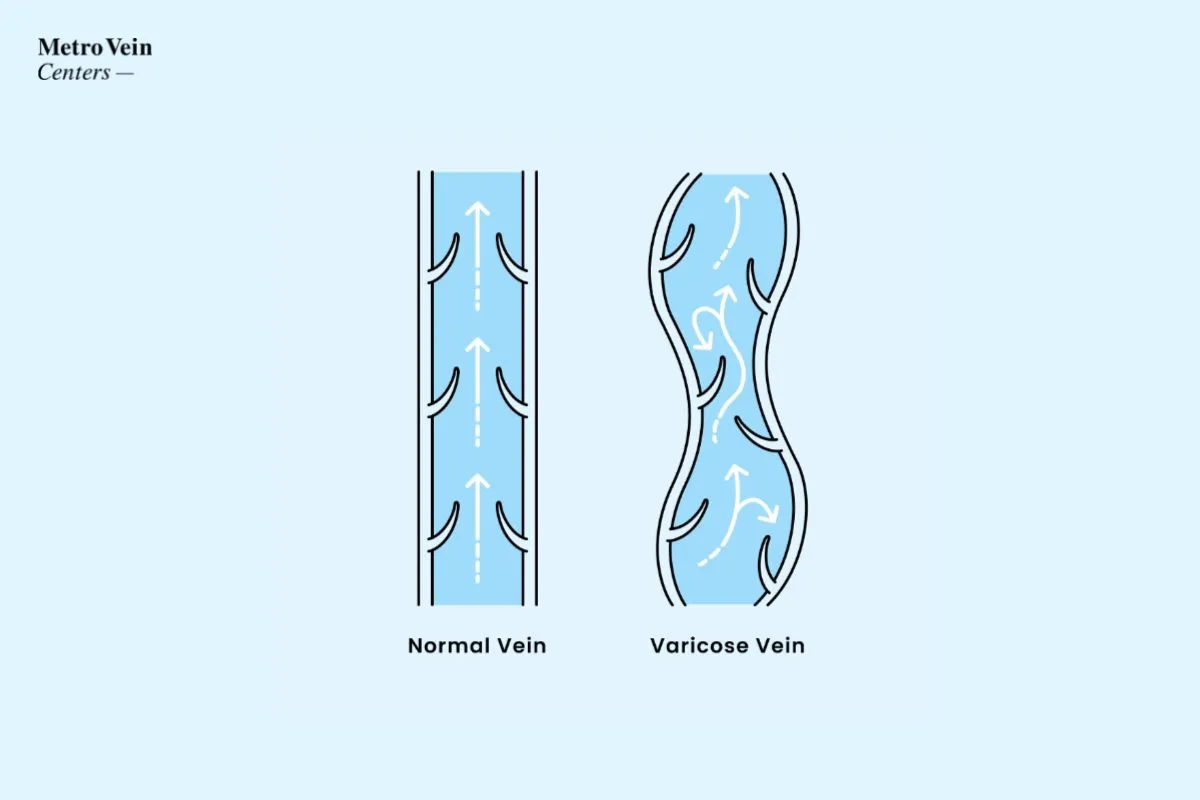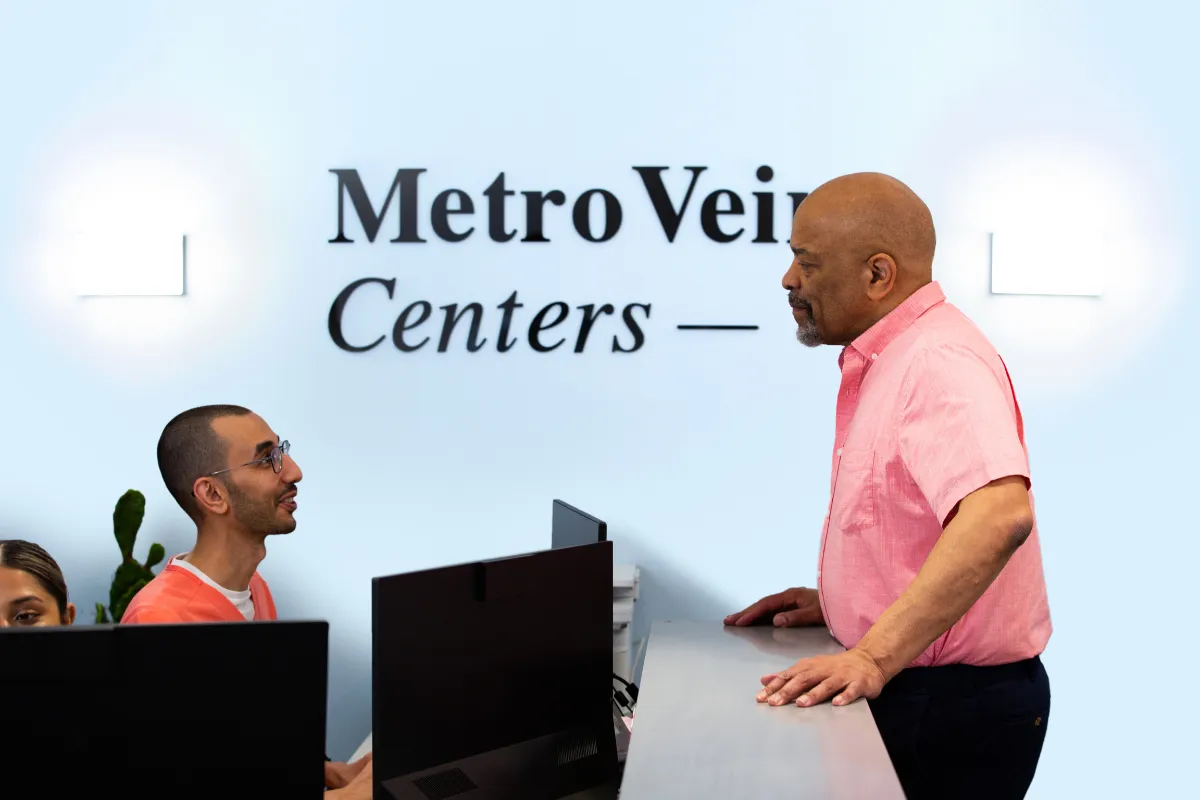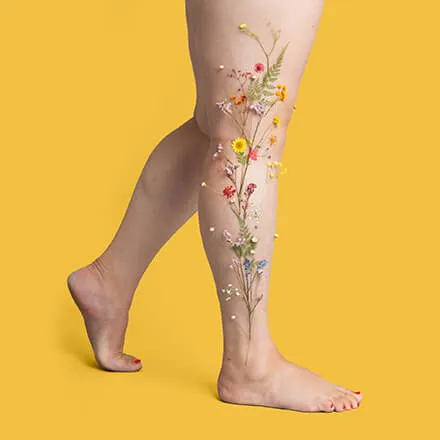Varicose veins are bulging, twisted, unhealthy veins that are commonly visible on the legs and are a sign of a circulatory disease. They're characterized by greenish/bluish, purple, or skin-colored veins that are raised from the surface of the skin.
Varicose veins can cause physical pain, cramping, restless legs, itchiness, and more serious health issues, such as blood clots, if left untreated.
Though sometimes harmless, they are often a visible sign of an underlying medical condition known as vein disease or “chronic venous insufficiency".
Who Gets Varicose Veins?
Almost anyone can get varicose veins, but women are more predisposed to getting them. This can be due to pregnancy stressors, genetics, and other factors.
Older adults who are overweight, who don't exercise, and/or who have a sedentary lifestyle are more prone to varicose veins.
The biggest factor is genetics. If your parents and grandparents had varicose veins, there's a good chance you will as well. One-third of the adult population in the USA develops varicose veins, so you are not alone.

The Best Ways to Prevent Varicose Veins
There's unfortunately nothing you can do to guarantee you won't get varicose veins. Even extremely healthy people can get varicose veins if they are predisposed or have a family history.
Still, there are steps you can take to minimize your likelihood of developing varicose veins, such as:
1. Maintain a healthy weight
Being overweight can put strain on your veins and heart, making it much more likely your veins will function poorly. Similarly, being severely underweight can also restrict proper blood flow, which can cause your veins to perform poorly.
2. Exercise regularly
Even if you're not overweight, lack of exercise can cause your muscles and heart to deteriorate, in turn limiting the health of your arteries and veins. Exercising five days a week for 30 minutes a day is one of the best practices for vein health.
Setting aside just a little bit of your day to getting your blood flowing is one of the most important things you can do for your vein health.
3. Avoid standing or sitting all day long
Professions where you're constantly in one position, either standing in one place all day or sitting sedentary at a desk all day, can be damaging over time.
Make efforts to vary what you're doing, and at the very least stand up every 20 minutes, do calf raises at your desk, take lunch walks, and elevate your feet when resting to promote blood flow. Excercise has been proven to help prevent varicose veins and improve circulation.
4. Eat a balanced diet
Keeping your salt intake low and eating a good mix of vitamins and minerals will keep you and your body in good shape. Fortifying your body means fortifying your vein walls, arteries, heart, and more.
In fact, there are quite a few delicious foods that will help promote strong vein health.
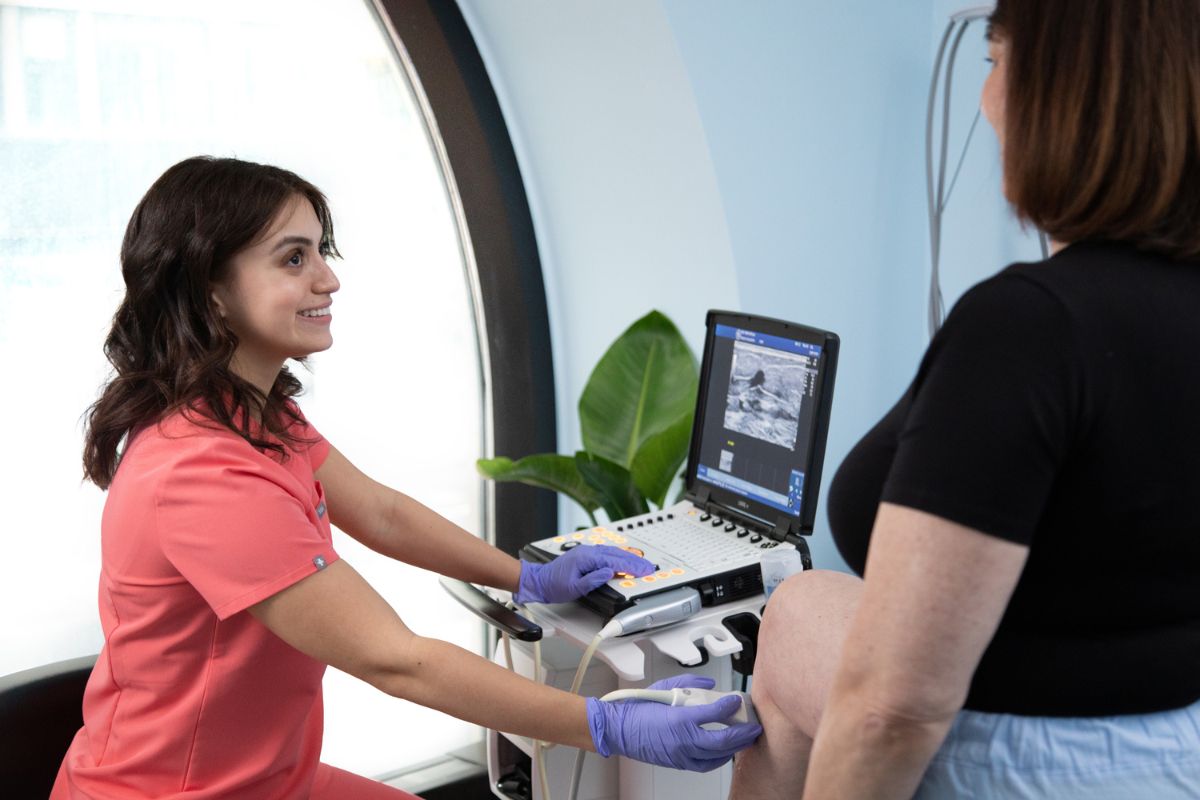
What If I Already Have Varicose Veins?
If vein problems persist, seek medical treatment with a board-certified vein doctor at an accredited vein clinic. If you have intense pain in your legs, loss of feeling, discoloration, or numbness, contact a medical professional immediately.
Varicose veins will unfortunately never go away on their own. Thankfully, minimally invasive treatments for varicose veins are available, and covered by most insurance at Metro Vein Centers.

Treatments to Clear Up Varicose Veins
The best varicose vein treatments vary depending on your particular situation, but can include everything from radiofrequency ablation, which uses radio wave signals to close down problematic veins, to laser ablation, which uses laser energy to treat the underlying cause of vein disease.
All of our Metro Vein Centers treatments are done right in our accredited vein clinics, and patients are able to return to work the very next day--recovery is that easy!
In addition to treatment, there are beneficial exercises and lifestyle changes you can do to alleviate pain and mitigate further vein damage in your legs.
These include:
· Choosing low-impact exercises such as swimming, walking, or yoga.
· Getting down to or maintaining a healthy weight.
· Wearing compression stockings to promote proper blood circulation and relieve pressure.
· Discontinuing use of any nicotine products, as the chemical compounds weaken vein walls.
· Staying hydrated and making sure you're eating a vitamin-enriched diet with plenty of fresh fruits and vegetables.

A Healthy Varicose Vein Outlook
Exercising and being in good health will ultimately give you the best chance at preventing varicose veins. You can never fully prevent varicose veins with so many factors at play, but you can take easy steps toward making sure you lessen your chances.
If you do have varicose veins, make an appointment to have our vein and vascular specialists at Metro Vein Centers look at your specific case.
1 in 3 adults suffer from varicose veins, and since these veins will never go away on their own, vein treatment is the best step you can take to better your vein health.
We look forward to meeting you!

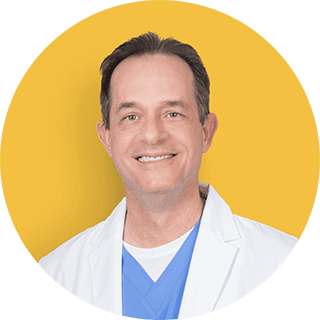
Dr. Philip LoPresti
Meet Dr. Philip LoPresti DO, DABVLM, FACS, a board-certified vein specialist and surgeon with over 20 years of experience. Schedule an appointment with him in Queens, NY today.
Meet Dr. Philip LoPresti
Trusted insight from the nationally accredited, board-certified vein doctors at Metro Vein Centers.


